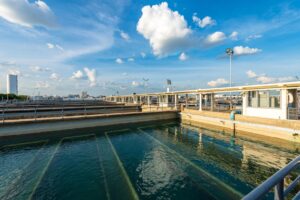Spokane is looking into fluoridating its water, and the expenditures may be more than the city can currently afford.

Coming in at $11 million up front and between $1.8 and $2.3 million in recurring yearly operating costs, implementation would take five or more years.
The Spokane City Council’s study session on Thursday touched on the issue.
“The purpose of this study was to assess the feasibility of putting fluoride into Spokane’s water system, identifying how that would be done, what chemicals we would use, and the costs that go along with that,” said Lee ODell, lead consulting engineer on the 502-page study.
Odell gave an overview of Spokane’s water system.
With 250,000 people and 80,000 service connections across 1,100 miles of water main, the system pumps 24 billion gallons annually. The system currently has eight well stations, with 14 wells, 12 well pumps, 34 storage reservoirs, and 25 booster stations with 72 pumps.
“A big part of the study was looking at how much equipment we’re going to have to put in and where it’s going to fit,” said Odell.
He went on to address one of the primary cost drivers of the project.
“At all of your well stations, it became evident that we were going to need new buildings at each facility,” said Odell. “We couldn’t incorporate it into any of the existing facilities.”
He went on to cite requirements for bulk storage, day tanks, and monitoring equipment that would not fit within the footprint of the existing structures. Some sites were found to need site access improvements, power upgrades, as well as security improvements.
This would require some 24 separate permits and reviews by both state and local agencies.
“You couldn’t store this at just a single centralized facility. It has to be at each of these well sites?” asked Councilmember Michael Cathcart.
“It does. The state has a requirement that you have to have a day tank for fluoride, and you manually have to go transfer it from the bulk tank to the day tank every day for feeding, to prevent siphoning of the fluoride into the system,” said Odell in response.
An additional unique requirement in Washington state law requires the entire water system to be fluoridated or none of it. This means the entire project would have to be built out before any part of it was turned on. A process that would take until late 2027 before any return was seen on the investment.
In addition, the city would need between 2 and 3 new full-time employees, all of which would need additional training compared to what is currently required of water treatment operators in Spokane.
“At this point, our mission was to deliver a study to understand costs,” said Katherine Miller, Director of Strategic Development and Initiatives with the City of Spokane, before acknowledging that it’s now up to elected officials as to what happens next.
Spokane Residents now have to wait on their elected officials to vote on spending the funds before the project moves forward.
With Spokane staring down a budget deficit of $50 million relative to their legal obligation and repeatedly spending one-time funds on recurring expenses, it’s unclear where the monies for the project will come from.
If implemented, Spokane would be one of the first cities in eastern Washington, and the largest, to fluoridate their water.
Full details of the study, as well as the process to date, are available on the city’s website dedicated to the project.
*Original full-text article online at: https://www.thecentersquare.com/washington/article_358affda-11fa-11ee-9ac7-0fb29aa3222f.html
